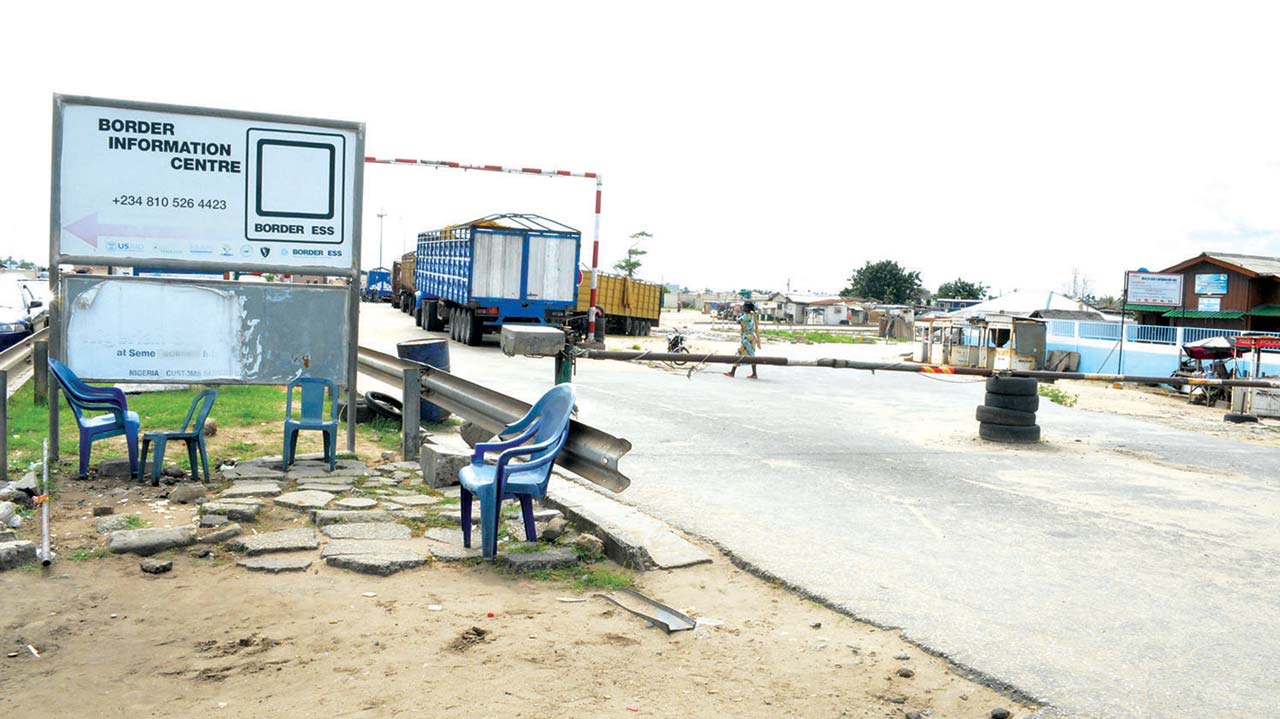In the last couple of months, new measures were introduced by the Central Bank of Nigeria (CBN) amongst which was the prohibition of some imported items for accessing the official foreign exchange market. Whilst this was ongoing the government closed the land borders with her neighbours, all of which are mostly members of the Economic Community of West Africa States (ECOWAS), except Cameroon who is not a member. The border closure has generated public discourse by all, the reason being that Nigeria is a major stakeholder in ECOWAS and also a strategic nation for the success of the African Continental Trade Agreement.
In the various discourse, it is becoming apparent that Nigeria’s land border appears to be the pivot of international trade in West Africa and nay Africa. Furthermore, because of the vastness of her border, pervasive dumping of goods and illegal trade with her neighbours had become a norm, notwithstanding the detrimental effects it has on the growth of the domestic economy.
The people of border communities have thus become notorious for nefarious activities of smugglers with tacit support by local indigenous people at the other side of the border. We, therefore, have a mixed race of people at the border who live, work and act as intermediaries for illegal border trades. CBN and government should, therefore, be applauded for security advantage as well as the internal self-sufficiency implications of these decisions to Nigeria. This is one of the few occasions policy decisions were made exclusive for the self-interest of Nigeria and Nigerian alone. The border closure should be considered as a modified open economy policy.
In West Africa, regional trades and movement of people are mostly conducted by road transportation, including human migration. The human migration becomes much easier because of the ECOWAS treaty which 2 allow citizen of member states unlimited access to any country within the region in a 90-day residency period. Whereas in a closed economy no activity is conducted with outside economies.
A closed economy is self-sufficient, meaning that no imports are brought in and no exports are sent out. Therefore, the current policy stance of the government is a quasi-open economy since goods and services are still allowed to be imported by air and sea. What is of importance is to evaluate the impact of the policies on average Nigerian on the street.
Regarding the import prohibition list, CBN should provide the micro sectoral impact of the policy not necessarily on reduction in foreign exchange utilization, but on specific industries and or companies affected by the policy. This will guide in a holistic evaluation of whether it has achieved the purpose intended. It may not be surprising that those items in the prohibition list are the ones being dumped in Nigeria through the land borders.
Furthermore, CBN can implement a total ban on foreign exchange allocation to non-capital goods. If such a policy is implemented, it will force the existing industry to source raw material within our domestic economy. Although such decision will come with temporal pain to the public but it will eventually result in internal self-sufficiency. The opinion of this author is that government should sustain the quasi-open economic policy for a reasonable medium term to enable the country to evaluate appropriately the real impact on the domestic economy especially the agriculture and manufacturing sectors.
The land border should be closed until the life of the Buhari government in 2023. For instance, China closed her economy in the 15th century AD during the reign of the Ming dynasty, which gave her the advantage of developing domestic capacity. Armenia, North Korean, Macedonia, and Hungary have also closed their borders in the past for various economic and political reasons. Nigeria can learn from the Chinese and other countries’ experiences. To continue to give teeth to the policy, it is imperative for the government to engage in continuous manpower swapping. The officers involved in the enforcement of the policy should be rotated on a quarterly basis. General believed is that the officers at the border posts are enmeshed in corruption and connivance with economic saboteurs and jobbers. This insinuation is never supported by facts or evidence. It is mainly a public bias against the customs officers serving their fatherland. Of course, there might be bad eggs like in any other organization, government decision should not be based on 3 bias. For this reason, the adoption of rotational swapping of officers will assist. This should also be extended to CBN, ministry of finance and all agencies involved in border monitoring.
Read Also: Edo 2020: PDP Will Win Without Ize-Iyamu – Orbih
Another area that should be evaluated is the impact of the policy on exports and export earnings. CBN should provide statistics of exports going through the land borders vis a vis the foreign exchange earnings. It may also be likely that the land border is a source of leakage of revenue to the government if export documentation procedure is weak at the border. Most of the export earnings by land may ultimately not be repatriated to Nigeria, given room for reverse dumping which is detrimental to earning capacity. The Manufacturers Association of Nigeria and other self-regulated associations should provide supportive information to the government on the impact of the policy on their members if any. This should be an opportunity for the government to develop and revise the process of export data through the land borders.
JohnBrowne, an expert in banking, investment and corporate governance, wrote from Lagos.
NAN
